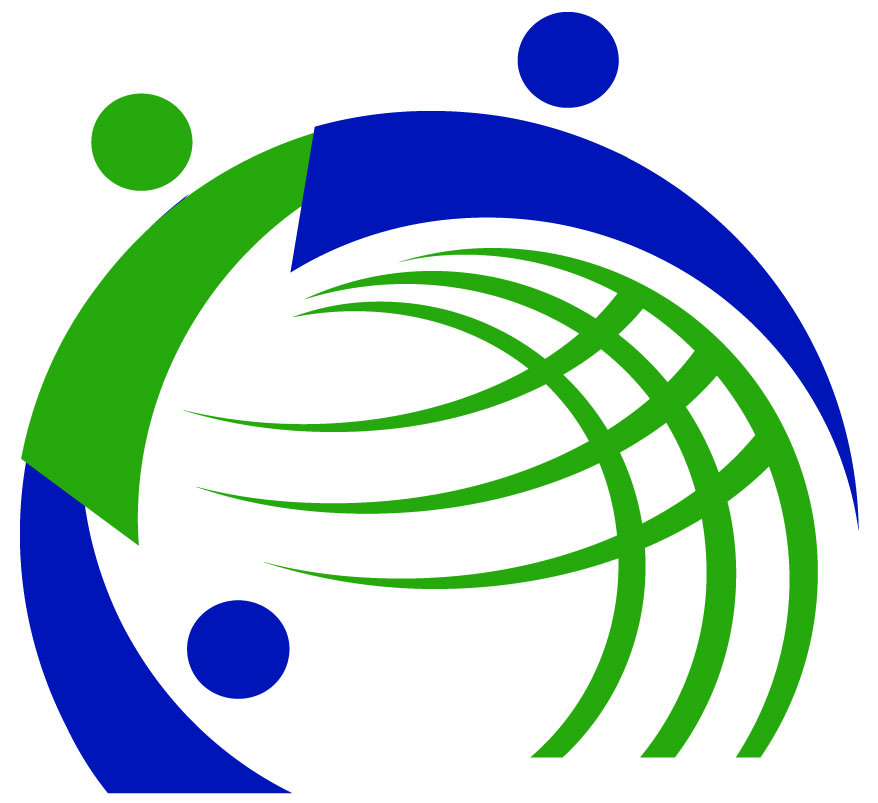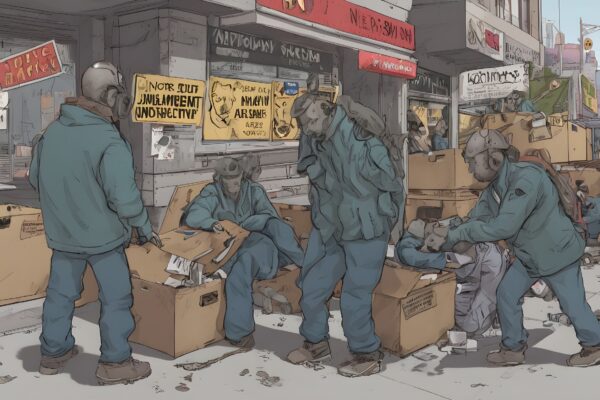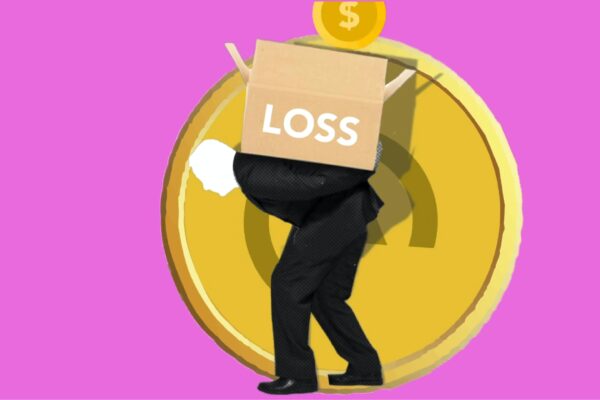– Rajendra
In the realm of democratic governance, the principle of majority rule stands as a cornerstone for ensuring fair representation and decision-making. True democracy hinges on the fundamental concept that the elected representatives reflect the will of the majority, thereby embodying the collective voice of the populace. However, the stark reality often unveils a disconcerting truth – the essence of majority representation is frequently compromised within the intricate web of contemporary electoral systems. This discrepancy becomes glaringly evident when examining the flawed mechanisms of candidate selection, where the triumph of a candidate may paradoxically stem from minority support rather than genuine majority endorsement. To illustrate this phenomenon, consider the scenario of an election featuring three candidates, where the victor emerges not as the choice of the majority but as the beneficiary of a minority faction’s votes.
“Take the case of three candidates standing for election. Two candidates get 30% votes each while the third gets 40%. The Victor who is actually voted by the minority 40%. (against 60%) wins. Can this then be called the rule of the majority?”
This glaring incongruity underscores a critical flaw within political democracy, where the principle of true majority representation is subverted by the nuances of electoral processes. In exploring the intricacies of this issue, it becomes imperative to dissect the underlying factors contributing to the erosion of democratic ideals, paving the way for a comprehensive understanding of the imperative for reform.
There is a lack of morality, rationality, education and socio-economic-political consciousness in the masses. Cunning erudite Politicians take advantage of this shortcoming to confuse people and attain Power. Democracy can only be effective and fruitful where there is no kind of exploitation. Every person has certain minimum requirements in life which must be guaranteed through constitution with individual purchasing capacity. There may be a little adjustment in these minimum requirements as per differences in time, space and person.
Minimum necessities must be provided to every individual. There is no limit to these minimum requirements. Every progressive society should bear in mind that the minimum requirements will go on increasing day by day. Mass education is one of the basic necessities for the successful and effective running of democracy. In some cases even educated people unjustly abuse their voting rights. People cast their votes at the insistence and inducement of misguided local leaders. To approach a polling booth like a herd of cattle to cast votes in ballot boxes is meaningless. Is this not a farce in the name of democracy?
Thus, the spread of education and proper knowledge is essential. Education does not only mean literacy or alphabetical knowledge. In my opinion, real education means proper, adequate knowledge and the power of understanding. In other words, education should impart an awareness of who I am and what I ought to do. Full knowledge about these things is what education means. Merely having some acquaintance with the alphabet is no education.
Morality is the second fundamental factor for the success of democracy. People sell their votes because they lack morality. There are some countries in the world where votes are bought and sold. Can we call it democracy? Is it not a farce? Democracy cannot succeed unless 51% of the population rigidly follow principles of morality. Where corrupt and immoral persons are in the majority, leaders will inevitably be elected among these immoral people.
In a democratic society immorality is a big issue that cannot be avoided. Some people say that if mustard seeds are sprinkled over any person possessed by a ghost, the ghost takes to its heels. But if the ghost hides in the mustard seeds themselves, then of course there is not the ghost of a chance of escape from the ghost. Similarly, the ghost of immorality lies hidden in today’s democratic system. Democracy induces sentiments like provincialism, communalism, casteism, etc., which are devoid of morality.
In some democratic systems social discrimination becomes so rampant that different groups and parties find ample scope to propagate and disseminate their defective ideas and fissiparous sentiments. So we see that morality, which should be the basic factor of democracy’s victorious march, goes unprotected. Thus in a democracy some people indulge in casteism and extract maximum advantage from it.
Political parties also nominate those persons who belong to majority communities as their representatives. The masses, being uneducated, cannot see through these games.
Thirdly, social, economic and political consciousness is also indispensable for the success of democracy. Even educated people may be misguided by shrewd and cunning politicians if they are not sufficiently conversant with social, economic and political issues. Democracy can be successful only when people imbibe these three kinds of consciousness. Without this awareness, the welfare of society is not possible either in theory or in practice.
Intellectuals, therefore, must never encourage unrealistic ideas of this sort. Shrii Sarkar
But even if these three requirements for the success of democracy are met, the real welfare of society is not possible by dialectical materialism or by democracy.
After getting some maturity, the final solution is an enlightened, benevolent dictatorship – that is a morally and spiritually conscious dictatorship.
Moralists, though in a minority today, have no reason to worry. Once society is led by people who are intellectually and intuitionally developed, there will certainly be no scope for exploitation and injustice. Shrii P.R.Sarkar
Now a question may arise. If in a nation or country every person enjoys human rights, why should a particular person have voting rights while others do not? After all, this world is the common inheritance of all, and every human being has the right to enjoy and utilize all mundane, supramundane and spiritual resources.
But just because everybody has the individual right to enjoy everything, it does not follow that everybody has the individual right to run the administration of a country. For the good and the welfare of the people in general, it is not fitting to leave the onus of the administration in the hands of all. Suppose a certain couple has five children. All of them are happy and comfortable in the family. But if the children, on the plea of being in the majority, suddenly claim full authority and the right of the management of the family, is it feasible? Say they call a meeting and pass a resolution that all the glasses and crockery should be smashed. Can we call it a wise resolution? Let me give you another example. Students compared to teachers are always in the majority. Now if the students, on the plea of being in the majority, put up the demand that they themselves should set the examination and be the examiners, can that demand be granted? So you see, democracy is not a very good or simple system.
“But unless an alternative, better and more agreeable theory or system is evolved, we will have to accept democracy in preference to other systems and make use of it for the time being”. Shrii Prabhat Ranjan Sarkar
In all countries where democracy is in vogue today, people have been deceived into believing that there is no better system than political democracy. Political democracy has no doubt granted voting rights, but it has snatched away the right of economic equality. Consequently, there is gross economic disparity between the rich and the poor, immense inequality in people’s purchasing capacity, unemployment, chronic food shortages, poverty, and insecurity in society.
The type of democracy prevalent in India is also political democracy, and it has proved to be a unique system of exploitation. The farce of democracy has been likened to a puppet show where a handful of power-hungry politicians pull the strings from behind the scene. In liberal democracies, capitalists manipulate the mass media such as the radio, television, Social media and newspapers, while in socialist democracies the bureaucrats lead the country to the brink of destruction.
Noam Chomsky is an American linguist, philosopher, cognitive scientist, historian, social critic, and political activist. Born on December 7, 1928, he is considered one of the most influential intellectuals of the 20th and 21st centuries.
Noam Chomsky’s perspective on capitalism, media control, and the illusion of democracy can be summarized as follows:
- Capitalism: Chomsky is critical of capitalism, particularly what he sees as its inherent tendency to prioritize profit over human welfare. He argues that under capitalism, wealth and power become concentrated in the hands of a few, leading to inequality and exploitation.
- Media Control: Chomsky contends that mainstream media outlets are often controlled by corporations and other powerful interests. He suggests that this control shapes the information that is disseminated to the public, often serving the interests of those in power rather than providing objective or diverse viewpoints.
- Illusion of Democracy: Chomsky posits that in many democracies, including the United States, there is an illusion of democracy. He argues that while citizens may have the opportunity to vote and participate in political processes, the actual decision-making power is concentrated among economic elites and corporate interests. This, he suggests, undermines the true principles of democracy, where power should be more evenly distributed among the populace.
Overall, Chomsky’s analysis highlights the interplay between capitalism, media control, and democracy, painting a picture of a system where economic inequality and corporate influence hinder the realization of true democratic ideals. He advocates for greater awareness and activism to challenge these dynamics and strive for a more equitable and democratic society.
In present democracy, there is little scope for honest, competent leaders to emerge in society, and virtually no possibility for the economic liberation of the people. Political democracy has become a great hoax for the people of the world. It promises the advent of an era of peace, prosperity, and equality, but in reality, it creates criminals, encourages exploitation and throws common people into an abyss of sorrow and suffering.
PROUT view : The days of political democracy are numbered. PROUT demands economic democracy, not political democracy. To make democracy successful, economic power must be vested in the hands of the common people and the minimum requirements of life must be guaranteed to all. This is the only way to ensure the economic liberation of the people.
Economic Decentralization
In economic democracy, economic and political power are bifurcated. That is, PROUT advocates political centralization and economic decentralization. Political power is vested with the moralists, but economic power is vested with the local people. The principal goal of the administration is to remove all the impediments and obstacles which prevent the economic needs of the people being met. The universal aim of economic democracy is to guarantee the minimum requirements of life to all members of society.
Requirements for Economic Democracy
The first requirement for economic democracy is that the minimum requirements of a particular age – including food, clothing, housing, education, and medical treatment – must be guaranteed to all. Not only is this an individual right, it is also a collective necessity because the easy availability of the minimum requirements will increase the all-round welfare of society.
The second requirement for economic democracy is that increasing purchasing capacity must be guaranteed to each and every individual. In economic democracy, local people will hold economic power. Consequently, local raw materials will be used to promote the economic prosperity of the local people. That is to say, the raw materials of one socio-economic unit should not be exported to another unit. Instead, industrial centers should be built up wherever raw materials are available. This will create industries based on locally available raw materials and ensure full employment for all local people.
The third requirement for economic democracy is that the power to make all economic decisions must be placed in the hands of the local people. Economic liberation is the birthright of every individual. To achieve it, economic power must be vested in the local people. In economic democracy, the local people will have the power to make all economic decisions, to produce commodities on the basis of collective necessity, and rationally distribute all agricultural and industrial commodities.
The fourth requirement for economic democracy is that outsiders must be strictly prevented from interfering in the local economy. The outflow of local capital must be stopped by strictly preventing outsiders or a floating population from participating in any type of economic activity in the local area.
For the success of economic democracy, PROUT must be implemented and the economic welfare of all people must be enhanced step by step. This, in turn, will lead to greater opportunities for the spiritual emancipation of human beings.
Finally, it should be remembered that economic democracy is essential not only for the economic liberation of human beings but for the universal well-being of all – including plants and animals. Economic democracy will devise ways and means to effect the smooth progress of society by recognizing the unique value of both humans and non-humans alike.
In conclusion, the flaws of political democracy are evident in the current socio-economic disparities and exploitation prevalent in societies worldwide. However, the solution lies not in abandoning democracy but in evolving towards economic democracy. By empowering local communities economically and ensuring the fulfillment of basic human needs, true democracy can be achieved, paving the way for a more equitable and just society for all.
Top of Form
References
Shrii P R Sarkar discourses
Economic Democracy in Prout in a nutshell Part 21
Noam Chomsky’s perspective on capitalism, media control, and the illusion of democracy
File name: Dialectical_Materialism_and_Democracy.html
File name: Compartmentalized_Democracy.html





